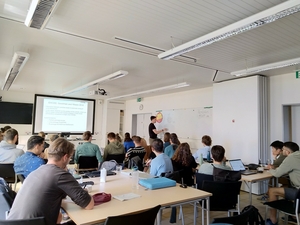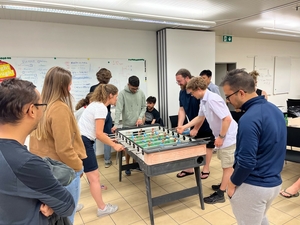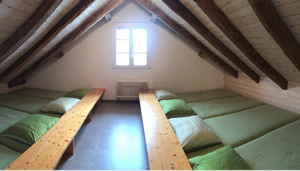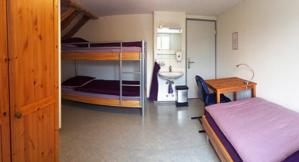Department Systems Analysis, Integrated Assessment and Modelling
Summer School in Bayesian Methods for Environmental Modelling

Overview
Mathematical models are essential for gaining insights into environmental systems and predicting their behavior. This summer school provides guidance on how to use Bayesian techniques to treat uncertainties in data, model structure, and parameters quantitatively. The course is designed for PhD students, post-doctoral researchers, and senior research scientists from all disciplines who utilize mathematical models in their work, with a focus on examples from hydrology and ecology.
The course consists of lectures and practice sessions with didactical exercises with solutions in R, Julia, and Python. We will also have time to discuss your individual modeling challenges. Emphasis is on the concepts and applications of methods, not on mathematical derivations. To profit most from the course, you should feel comfortable with basic probability calculus, and reading and writing simple code. For those in need of a refresher, optional lectures on the fundamentals of probability calculus and an introduction to R programming are available on Sunday.
We strongly encourage attending the school in person for maximum benefit; however, remote participation could be arranged if necessary. Please contact us to discuss this option.
The course is equivalent to 2 ECTS points.
Topics
We cover the following topics:
- Model representation and philosophy: Importance of models, sources of uncertainty in models, description of uncertainty, mathematical representation of models.
- Model inference: Sensitivity analysis, model calibration, likelihood construction, prior formulations, Bayesian inference and required numerical algorithm such as Importance Sampling, Markov Chain Monte Carlo simulation, and Machine Learning based inference.
- Model predictions: Estimation of the uncertainty of model predictions in the Bayesian framework.
For more details have a look at the preliminary program. The final version will be uploaded in a few weeks.
Location
The 15th Summer School will be held in Kastanienbaum near Luzern (Switzerland), an idyllic location at the shores of Lake Lucerne. See here for more details.


Accommodation and Catering
Breakfast, lunch, and dinner are provided. Please mention any dietary restrictions beyond vegetarianism in your application email.
Simple accommodation is available directly on site: single rooms (CHF 250/week), 3-bed rooms (CHF 180/week) and dormitories (CHF 100/week). The rooms will be filled on a first-come-first-serve basis. The course officially ends on Friday, however, there is the possibility to stay until Saturday morning.
If you prefer a more comfortable accommodation, we recommend to book a hotel. The location can be reached by public transportation in about 30 min from Lucerne (see here).
Further information and other options for accomodation
There is also a camping space available nearby.

Dormitory with 6 people (contrary to the picture there will be only 3 mattrasses on each side)

Triple room

Single room with lake view
Requirements
The participants should be familiar with basic probability calculus and have some knowledge of R, Python or Julia. The probability calculus exercises should help you to decide whether or not to attend the introductory lectures on Sunday. If you have any doubts, please do not hesitate to contact us.
Course Fee
The course fee is CHF 800. For participants belonging to an institution of the ETH domain, a reduced fee of CHF 400 applies. This includes documentation, coffee, lunch and dinner, accommodation is charged extra.
Application
Please send your application by email to Jacqueline Eicher by May 6th, 2025. The number of participants is limited to 20. The participants will be considered according to the time of their application. Participation will be confirmed after payment. Cancellation fees may apply.
Lecturers
The course will be taught by Carlo Albert, Andreas Scheidegger, Peter Reichert, and Marco Baity Jesi from Eawag Dübendorf and ETH Zurich, Switzerland, and Dmitri Kavetski from the School of Civil, Environmental and Mining Engineering, University of Adelaide, Australia.
